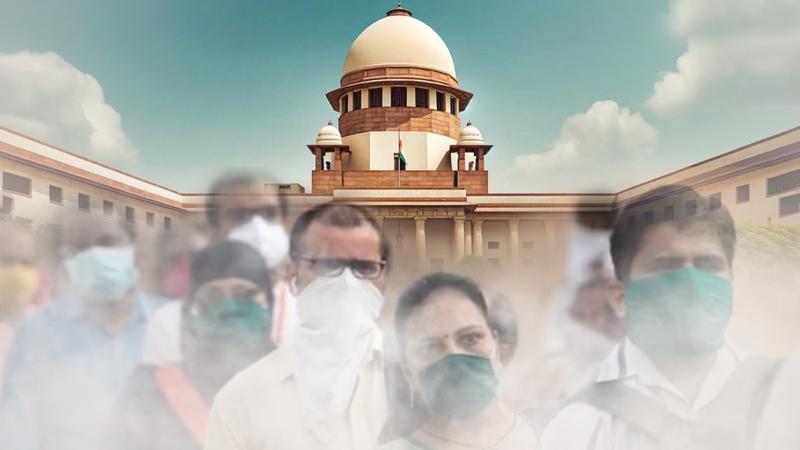Published 15:33 IST, November 18th 2024
GRAP IV In Delhi: Stalled Home Projects To Cost More? 'Burden On Buyers', Say Real Estate Insiders
The real estate moguls weigh in on the government's decision, and feel that the impact on the industry could trickle down to consumers, and ordinary citizens c

With the Air Quality Index (AQI) having crossed the 970 mark in Delhi, 810 in Gurugram, and 736 in Faridabad, the government decided to implement Graded Response Action Plan- 4 or GRAP-4. After GRAP 1,2, and 3, this is the fourth level of restrictions to curb pollution, which came into effect on 18th November, 8 am onwards. The real estate moguls weigh in on the government's decision, and feel that the impact on the industry could trickle down to consumers, and ordinary citizens constructing their homes, as well as municipal contractors repairing roads and lanes.
How will it impact business and people?
Under GRAP-III, minor works like MEP (Mechanical, Electrical, Plumbing) were permitted, which is banned under GRAP-IV. Nayan Raheja of Raheja Developers says, "Certain works like plumbing and other internal works could be permitted with proactive safeguards measures in place." he said. Not only construction, but the new restrictions will serve as a bottleneck to logistics as well. Diesel-run medium and heavy goods vehicles registered in Delhi which are BS-IV compliant or below are not allowed to operate, but they are needed for the transfer of raw material.
The impact of the ban will be felt by people who want to buy homes or invest in real estate. "A complete ban on construction not only inflates project costs and burdens buyers and developers, but it also impacts the economy and affects the livelihoods of unskilled laborers who are employed in large numbers by the real estate sector," explains Yash Miglani, MD, Migsun Group. A delay in project completion will mean daily wagers losing livelihood, less spending power, and less circulation of money. A delay in project completion will cost the real estate developers more, it will imply that they have to take care of logistics and storage for a longer period, and in some cases pay a fine for delayed constructions, a cost that will ultimately trickle down to end consumers.
Despite the economic repercussions, some developers are in favour of GRAP-IV and look at the developments in a positive light. "In line with more general environmental objectives, this halt offers a chance to implement greener procedures and technology, guaranteeing the real estate industry's sustainable growth," says Sanjeev Arora, Director of 360 Realtors.
Does It Really Help Curb Pollution?
There is no single cause of Delhi's pollution, and GRAP-IV has come at a time when the Real Estate Regulatory Authority (RERA) has already said that registered projects are required to implement anti-pollution measures, which the real estate companies "Are already implementing" says Dr. Amish Bhutani, MD, Group 108. He says, "Anti-pollution measures, like anti-smog guns and dust suppression among others." are already in place. "Given these factors NGT should take a lenient view, and should permit non-polluting activities," says Bhutani. Keeping these factors in mind, real estate projects are already doing a lot to curb pollution.
The Supreme Court has said that GRAP-4 will stay till official orders to remove them have been announced. The court orders do not provide respite to real estate developers, as they continue to suffer. While large construction companies continue to suffer, the real impact will be on labour-folk and middle-class property buyers, with some or no major impact on the pollution.
Updated 15:33 IST, November 18th 2024